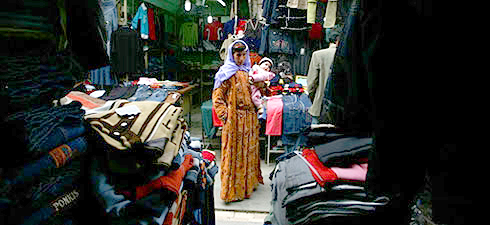Last week, Tariq Ramadan argued that Turkey was very much a part of Europe and deserved EU membership. In my view, Turkey is both a part of and apart from Europe. This also accords with my "mash of civilisations" theory. But even though Turkey is (at least partly) European, that does not mean it will join the European Union. And there are many reasons for this. One is pretty obvious: religion and the elusive issue of "culture". The EU is seen by enough European leaders and citizens – either covertly or overtly – as a "Christian" club, a secularised version of old Christendom.
That would explain how some countries with questionable records on minority rights, such as Lithuania, or with dodgy economic fundamentals and economies run by speculators and oligarchs, such as Latvia, managed to become members. It might also shed light on why Greece – the "cradle" of western civilisation – was let into the then EEC without pre-conditions or a lengthy pre-accession period, despite concerns over its "economic backwardness" and its ongoing conflict with Turkey, and how its lacklustre performance since has not raised eyebrows.
But it would be wrong to overstate the influence of Turkey's Islamic identity. As in so many other instances, religion, civilisation or culture are the cloaks that conceal other more mundane clashes of interests. First, there are the genuine concerns – despite the massive economic progress Turkey has made in recent years – over the impact the country's large population of rural poor will have on the Union, not to mention the Kurdish question.
In addition, size does matter in the EU. Turkey's demographic structure means that it would be one of the largest, if not the largest, member state by population, automatically giving it a top seat at the European table, upsetting the German-French axis and threatening the status of other large countries. For that reason, Bosnia-Herzegovina or Albania might become members of the club before Turkey. Similarly, size is partly why Ukraine, despite its keenness to join and its Christian identity, is being offered the consolation prize of closer ties.
Nevertheless, it is not surprising that Turks feel peeved and frustrated after more than half a century of queuing patiently outside the gates of the EU. But rather than wait forever, Turkey should seize the opportunity and capitalise on its recent efforts to strengthen its Middle Eastern ties.
From melting pot to Middle East Union
Since the collapse of the Ottoman Empire after the first world war and Mustafa Kemal Ataturk's creation of a modern secular Turkish republic, Turkey has effectively severed its centuries-old links with the Middle East. For their part, the Arabs have also turned their backs on the Turks due to painful memories evoked by centuries of subservience and the intense Turko-centricism that marked the final decline of Ottoman rule, as well as the dream of full Arab independence. But there are certain things the region lost in the process which are worth rebuilding in a modern, fairer vestige – relative stability, the rule of law, cross-border freedom of movement, and a dynamic multi-ethnic multi-religious melting pot.
Just as the EU is a voluntary grouping of a region only ever unified through the conquests of the likes of Charlemagne and Napoleon, why shouldn't the Middle East become a voluntary union between the lands of the former Ottoman Empire and other neighbours willing to join, such as Iran and even Israel, once it is at peace with the Palestinians? Doubtlessly, the challenges involved in fulfilling such a vision are immense. The Middle East is not only one of the world's most unstable regions, it is also incredibly diverse, politically, culturally and religiously.
To my mind, the best unifier is pragmatism fuelled by a sense of common destiny constrained by common challenges: insecurity and conflict, poverty, the youth bulge, water shortages, foreign domination, etc. Europe's first pragmatic steps along the road to integration were taken when a core group of six countries set up the European Coal and Steel Community. Similarly, the Middle East could take the first tentative steps by grouping around resources that are vital to the region's future, say oil and water. Another crucial area in this volatile neighbourhood is security. A mutual defence and non-aggression pact between the region's countries is a must for future stability – with or without a union. To underwrite human security, efforts should be made to establish an independent Middle Eastern human rights court.
If we take history as our guide, there is the risk that the emergence of such a bloc would be seen as a threat to "vital western interests", and western soft and hard power could be deployed against it. But the presence of Turkey – militarily powerful in its own right, a staunch western ally and an almost EU partner – can help reduce such risks. At present, a peaceful and integrated Middle East of this kind seems like something of a fantasy. But then who would've thought that Europe could rise peacefully from the ruins of two world wars and tear down an Iron Curtain?
Was this article useful? If so we are delighted!
It is freely available because we believe that the right to free and independent information is essential for democracy. But this right is not guaranteed forever, and independence comes at a cost. We need your support in order to continue publishing independent, multilingual news for all Europeans.
Discover our subscription offers and their exclusive benefits and become a member of our community now!












